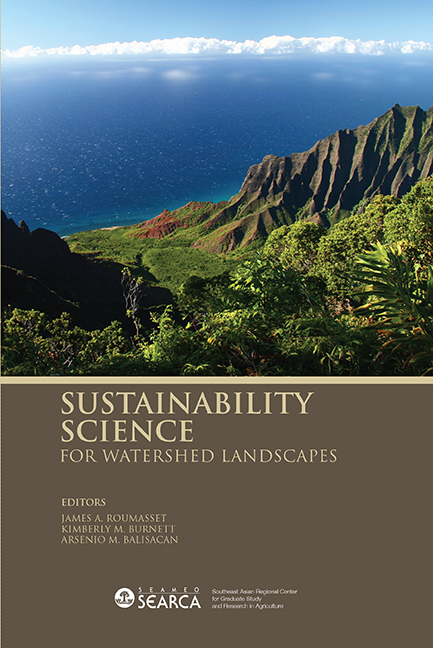Message
Published online by Cambridge University Press: 21 October 2015
Summary
Cynicism surrounds the concept of “sustainable development” and its approaches, for at least two reasons. Firstly, the concept, as practiced, is nebulous – meaning different things to different people, even among serious researchers and policy analysts. Indeed, many vociferous advocates of sustainable development have one thing in common – they tend to speak a language other than what we know as science. Secondly, evident success or sustained impact of approaches to sustainable development in many parts of the world is quite sparse and wanting.
A useful point of departure is thus to define sustainability science at the outset. As William Clark succinctly puts it, sustainability science is a field defined by the problems it addresses rather than by the disciplines it employs, much like health science and agricultural science. In particular, it is a field that seeks to, and I quote, “facilitate a transition toward sustainability – that is, improving society's capacity to use the earth in ways that simultaneously meet the needs of a much larger but stabilizing human population, … sustain the life support systems of the planet, and … substantially reduce hunger and poverty” (Our Common Journey: A Transition Toward Sustainability, National Research Council Policy Division Board on Sustainable Development, 1999). Clark sees sustainability science “transcend(ing) the concerns of its foundational disciplines and focus(ing) instead on understanding the complex dynamics that arise from interactions between human and environmental systems.”
Bringing together the various sciences along with other dimensions of human thought to address sustainability's concerns, including the social goals of sustainable development and humanity's well-being, is, to say the least, exciting. This is indeed synergy of a 21st century kind!
On the other hand, the challenges facing this new field are huge. For the most part, sustainability science requires detailed information synthesized into new knowledge, enriching and even revolutionizing present paradigms and methods of research and policy design.
- Type
- Chapter
- Information
- Sustainability Science for Watershed Landscapes , pp. xii - xiiiPublisher: ISEAS–Yusof Ishak InstitutePrint publication year: 2010



